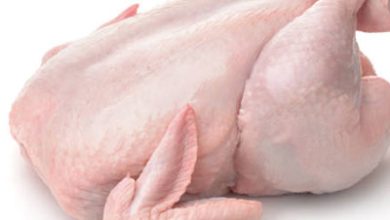The Healing Power of Chinese Medicine: A Comprehensive Guide to Traditional Remedies

For thousands of years, Traditional Chinese medicine (TCM) has been a cornerstone of healing and wellness in Eastern cultures. Rooted in a deep understanding of the human body, mind, and spirit, TCM offers a holistic approach to health that is distinct from Western medicine. With a focus on balance, prevention, and the body’s natural ability to heal, Chinese medicine continues to grow in popularity worldwide.
In this guide, we’ll explore the core principles of Chinese medicine, delve into its most commonly used treatments, and explain how these ancient practices can offer healing in the modern world.
The Foundations of Chinese Medicine
At the heart of Chinese medicine is the concept of balance—specifically, the balance of opposing forces, known as Yin and Yang. These two principles represent all aspects of the universe and human life. Yin is associated with coolness, darkness, rest, and nourishment, while Yang represents warmth, activity, and energy. The harmonious interplay of Yin and Yang is essential for maintaining health.
In TCM, illness occurs when there is an imbalance between these two forces or when the flow of Qi (pronounced “chee”)—the body’s vital energy—is disrupted. Qi flows through the body along pathways called meridians, and any blockage or deficiency in Qi can lead to disease or discomfort. Chinese medicine aims to restore balance by addressing these imbalances through a range of natural and therapeutic methods.
Core Components of Chinese Medicine
Traditional Chinese Medicine is a multifaceted system that includes various healing practices. The most widely recognized therapies include acupuncture, herbal medicine, dietary therapy, and movement-based practices like tai chi and qi gong. These treatments are often used in combination to promote overall wellness.
1. Acupuncture
Acupuncture is perhaps the most well-known component of TCM. It involves inserting thin needles into specific points on the body, known as acupoints, to regulate the flow of Qi. Acupoints are located along the meridians, and stimulating these points can help clear blockages, allowing the body to heal.
- Benefits of Acupuncture: Acupuncture has been found to be effective in treating a wide range of conditions, including chronic pain (such as back pain and arthritis), migraines, digestive issues, and stress-related disorders. By promoting balance and stimulating the body’s natural healing responses, acupuncture can also enhance overall well-being.
- How It Works: According to TCM theory, acupuncture works by activating the body’s energy pathways and encouraging the release of endorphins, the body’s natural painkillers. It also helps reduce inflammation and promotes circulation, which can accelerate the healing process.
2. Chinese Herbal Medicine
Chinese herbal medicine is a cornerstone of TCM, with a history that spans over two millennia. Chinese herbs are used to treat a variety of health issues, from digestive problems to respiratory infections and immune system deficiencies.
- Common Herbs Used: Herbal formulations in TCM are often custom-made to suit each individual’s needs. Some commonly used herbs include ginseng (for energy and immune support), ginger (to warm the body and improve digestion), licorice root (for respiratory health and detoxification), and chrysanthemum (for calming and cooling).
- How It Works: Herbs are prescribed based on the individual’s specific constitution and health condition. In TCM, different organs correspond to different imbalances. For example, someone with a deficiency in lung Qi may be given herbs to strengthen the lungs and improve respiratory function. Chinese herbal remedies are typically taken as teas, powders, or capsules.
3. Dietary Therapy
In Chinese medicine, food is not just a source of nourishment but also a form of medicine. Dietary therapy in TCM emphasizes the importance of eating foods that support balance within the body and help maintain the flow of Qi.
- Yin and Yang Foods: Foods are categorized as either Yin (cooling) or Yang (warming), and the right balance depends on an individual’s constitution and the climate they live in. For example, someone with too much internal heat (Yang excess) might be advised to consume more Yin foods like cucumbers, watermelon, or tofu. Conversely, someone with coldness in their body (Yin excess) might benefit from warming foods like ginger, lamb, and cinnamon.
- The Five Flavors: TCM also classifies foods into five flavors—sweet, sour, salty, bitter, and pungent—each of which corresponds to different organs and helps regulate their function. For example, bitter foods like dark leafy greens are thought to benefit the heart and clear heat, while sour foods like citrus fruits can support the liver.
4. Tai Chi and Qi Gong
Both tai chi and qi gong are movement-based practices that are integral to Chinese medicine. These practices focus on slow, intentional movements combined with deep breathing and mental focus to promote the flow of Qi, improve flexibility, and reduce stress.
- Tai Chi: Often described as “meditation in motion,” tai chi involves a series of gentle movements that are performed in a slow, flowing manner. It’s particularly effective for improving balance, coordination, and mental clarity.
- Qi Gong: Qi gong combines movement, breath control, and meditation to cultivate and circulate Qi. Regular practice can help prevent illness, improve energy levels, and promote mental tranquility.
The Modern Relevance of Chinese Medicine
As modern life becomes increasingly fast-paced and stressful, the principles of Chinese medicine offer valuable tools for maintaining balance and preventing disease. Unlike Western medicine, which often focuses on treating symptoms, Chinese medicine aims to address the root cause of illness and restore harmony in the body.
1. Holistic Approach to Health
One of the greatest strengths of TCM is its holistic approach. Chinese medicine looks at the body as a whole and considers the interactions between different systems, rather than treating each symptom or organ in isolation. This means that treatments are often more personalized and can offer a more comprehensive solution to health issues.
For example, someone experiencing frequent headaches might receive acupuncture to relieve pain, herbal remedies to address underlying imbalances, and dietary recommendations to prevent future occurrences. This multifaceted approach can be particularly beneficial for chronic conditions that do not respond well to conventional treatments.
2. Preventive Medicine
TCM places a strong emphasis on prevention. By maintaining balance and harmony in the body, TCM practitioners believe that many illnesses can be avoided altogether. This preventive mindset encourages patients to be proactive about their health, making lifestyle adjustments, dietary changes, and incorporating stress-reducing practices before health problems arise.
3. Complementary to Western Medicine
While Chinese medicine is often used as an alternative to Western medical treatments, it can also complement them. Many patients find that combining TCM with conventional medicine helps improve their outcomes. For instance, acupuncture is frequently used alongside physical therapy for pain management, while herbal medicine can support the body during recovery from surgery or chemotherapy.
Is Chinese Medicine Right for You?
Chinese medicine offers a gentle yet powerful way to address a wide range of health concerns. If you’re seeking a holistic approach to healing, TCM might be the perfect complement to your health regimen. Whether you’re dealing with chronic pain, stress, or digestive issues, or you simply want to improve your overall well-being, the natural therapies of TCM can offer relief.
What to Expect from a TCM Practitioner
During your first visit, a TCM practitioner will take a detailed health history, assess your tongue and pulse, and ask questions about your diet, lifestyle, and emotional well-being. Based on this information, the practitioner will create a personalized treatment plan, which may include a combination of acupuncture, herbal medicine, dietary recommendations, and movement therapies.
Conclusion: Embracing the Power of Chinese Medicine
The healing power of Chinese medicine lies in its ability to restore balance, prevent illness, and promote long-term health. With its focus on natural remedies and holistic wellness, TCM provides a time-tested alternative to conventional medicine. Whether through acupuncture, herbal medicine, or dietary therapy, Chinese medicine offers a comprehensive approach to healing that can benefit both body and mind.
By embracing the principles of Chinese medicine, you can tap into a rich tradition of healing and wellness that has stood the test of time—helping you achieve not just the absence of disease, but a true state of health and vitality.




